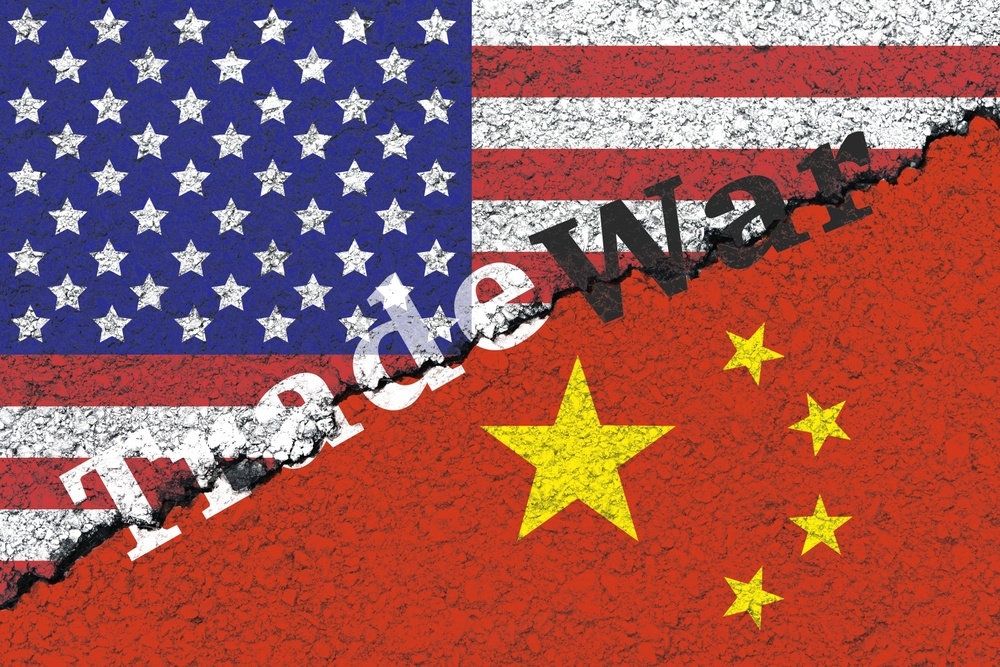The new U.S. Commerce Secretary focuses on tariffs on China, and companies are afraid of being affected by high tariffs?

Nominated by Commerce Secretary to continue Trump's policy blueprint
Former U.S. President Trump announced the nomination of Wall Street financial tycoon and Cantor Fitzgerald CEO Howard Lutnick as Commerce Secretary responsible for U.S. trade and tariff policies. Lutnik has long supported Trump's policy philosophy, including the return of manufacturing to the United States and the promotion of cryptocurrencies. He also serves as CEO of brokerage BGC Group and chairman of commercial real estate services company Newmark Group, and leads trading platform FMX. Lutnik's responsibilities are not yet fully clear, and it is unclear whether he will concurrently serve as the U.S. Trade Representative, but it is widely expected that he will directly manage important issues involving trade policy.
Focus on the role of the Ministry of Commerce and lead the Sino-US science and technology and economic war
In recent years, the U.S. Department of Commerce has become the core agency for implementing international trade policies, with 47,000 employees covering a variety of functions from census to ocean navigation. However, its trade-related powers have gradually become the focus:
- technology export control
商务部对美国敏感技术的出口进行管制,成为美中科技对抗的重要工具。川普及拜登政府均利用该部权限,阻止美国及外国技术流向中国,特别是与人工智慧及半导体相关的技术。 - anti-dumping and countervailing investigations
商务部主导反倾销与反补贴案件调查,针对中国等竞争国的贸易行为实施惩罚性关税,以保护美国产业。
Trump once imposed high tariffs on steel and aluminum products on the grounds of Section 232. After Lutnik takes office, he may invoke the same clause to impose extensive taxes on other imported goods, further changing global trade rules.
Deepen restrictions on technology exports and weaken China's competitiveness
In the past two years, the United States has imposed a comprehensive export ban on high-end chips and their manufacturing equipment on China. The policy aims to restrict China's access to chip technology for AI and defense technology and prevent it from further enhancing its military strength.
Lutnik will be responsible for implementing sanctions policies against China technology giants such as Huawei and SMIC in the future, including:
- Preventing China from obtaining chips needed for AI
严控先进晶片出口,确保中国在AI领域落后于美国。 - Limit the development of semiconductor technology in China
禁止晶片制造设备出口,削弱中国生产新一代半导体的能力。
Lutnik's tariff stance supports high taxes on China
Although Lutnik rarely talks publicly about China, he made it clear in a recent interview that he supported high tariffs. He believes that taxing China will not only help protect U.S. manufacturing, but also create considerable tax benefits. He mentioned: "Taxing China can make US$400 billion." Trump has also repeatedly promised to rebuild the U.S. manufacturing base, planning to impose new tariffs of at least 60% on China goods and tariffs of 10% to 20% on goods from other countries. However, economists warn that this may lead to global trade being blocked, push up the cost of imported goods, and pose risks to the U.S. economy.
Disclaimer: The views in this article are from the original Creator and do not represent the views or position of Hawk Insight. The content of the article is for reference, communication and learning only, and does not constitute investment advice. If it involves copyright issues, please contact us for deletion.